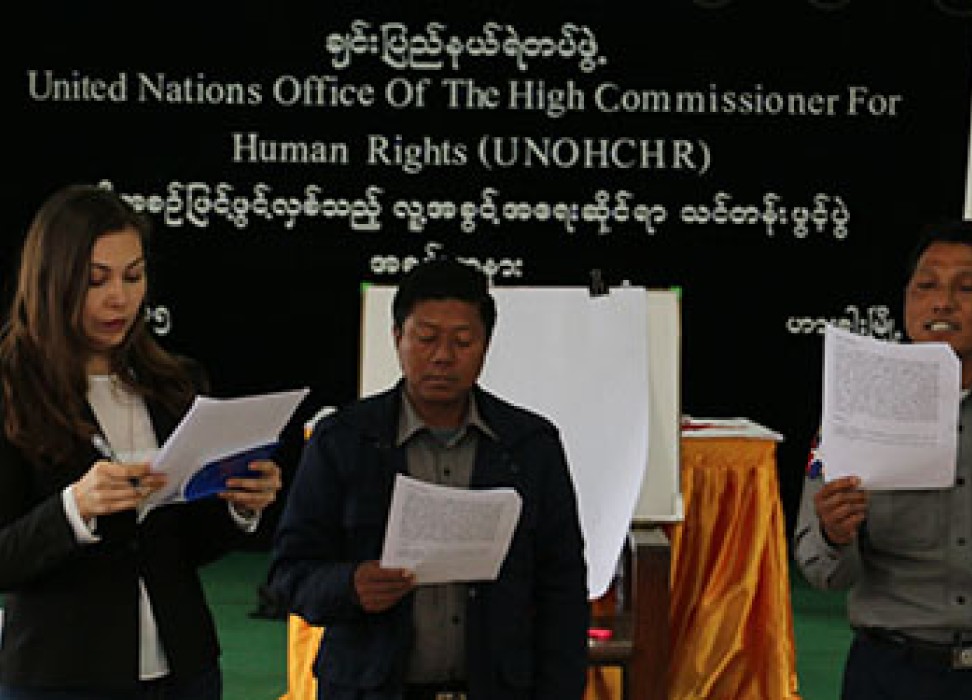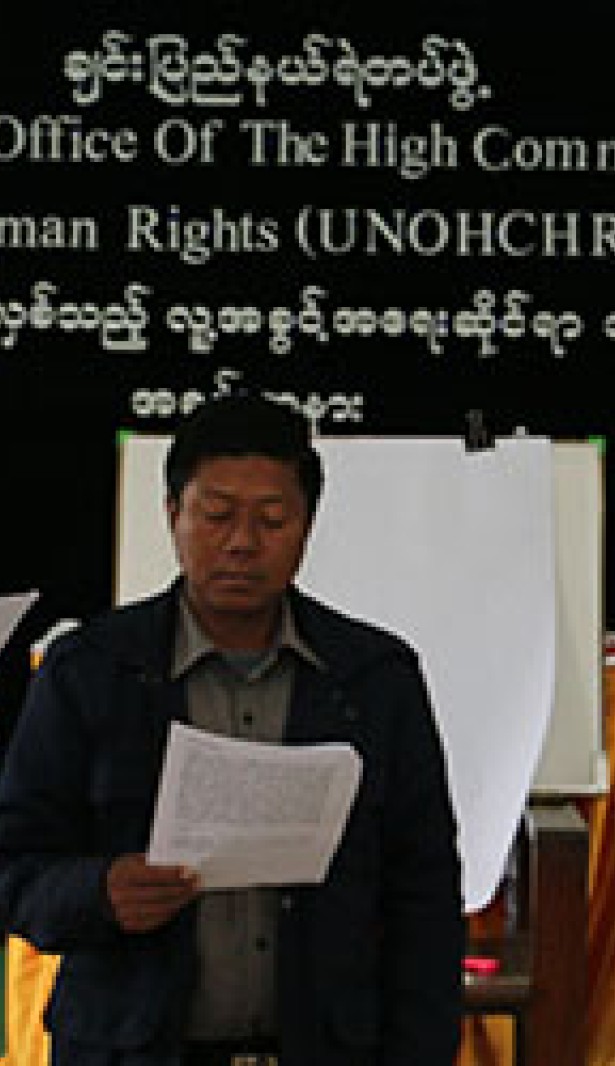Policing human rights in Myanmar
05 February 2016

High in the hills of Myanmar’s remote Chin state, some 50 police officers take their seats in the chilly hall for the final session of an innovative training program aimed at ensuring that human rights are at the heart of good police work.
The two-day session last December in Hakha, the regional capital, was the final course in a series of nation-wide workshops over an 18-month period. The workshops involved about 1,000 Myanmar Police Force (MPF) officers - mostly township and district commanders – and were held across 14 states and regions.
Two trainers from the UN Human Rights Office instructed the participants, almost all of whom were men, on the best practices that drive human rights-based policing. One of the key objectives of the program was to address the under-representation of women and ethnic minorities in the MPF, and to show how their exclusion has had a detrimental effect on promoting and protecting human rights.
The Office saved the hardest training session till last – at least as far as access was concerned. From Myanmar’s biggest city Yangon, it took two OHCHR’s trainers two days to reach Hakha via hair-raising mountain passes, some of which had been pulverized by recent landslides caused by heavy rains. At an altitude of 1,867 metres (6,128 feet), Hakha is one of the country’s highest townships.
“The training program was very well received, and overall a resounding success,” said Andrew MacGregor, a senior human rights officer working in Myanmar. “We focused on building an understanding that the police have a duty to avoid actions that violate human rights, and that they must take all necessary steps to protect those rights.”
For most of the participants, this was their first training in human rights.
NEW CHAPTER
Five years ago, such a course would have been unthinkable in military-ruled Myanmar. But a new Myanmar is now emerging, underscored by Nobel laureate Aung San Suu Kyi’s landslide victory last November.
While hailing the vote as “a new chapter in the country’s history”, the UN Special Rapporteur for Myanmar, Yanghee Lee, said there were serious human rights challenges that must be addressed. She underlined that discrimination against ethnic and religious minorities along with prevalent hate speech and incitement to hatred and violence against minority communities should be dealt with as a matter of priority.
The UN Human Rights Office identified police training as being a critical component of its program to promote and protect human rights in Myanmar. As a result, the Office drew up a two-day course covering the international human rights framework and human rights standards. The program covered such areas as investigations, arrests, crowd management, the use of force and firearms, and the prevention of torture and ill-treatment.
OHCHR briefed the MPF leadership during the program, and the coursework was adjusted as varying human rights issues became apparent.
HUMAN RIGHTS: THE FOUNDATION OF GOOD POLICE WORK
The UN Human Rights Office, in cooperation with Myanmar authorities, is now planning further training programs to integrate human rights more fully into law enforcement practices.
OHCHR will work with the MPF to integrate human rights into the training curriculum, and will assist in teaching trainers. The Office also plans to conduct a seven-day pilot program for senior police officers.
“We now need to build on this positive start,” said MacGregor, adding there was still a long way to go to fully enshrine human rights principles into police work. “We know that such human rights-based training helps build effectiveness and professionalism.”
“This particular joint initiative with the MPF underlined that protecting human rights is the very a foundation of good police work.”
5 February 2016

